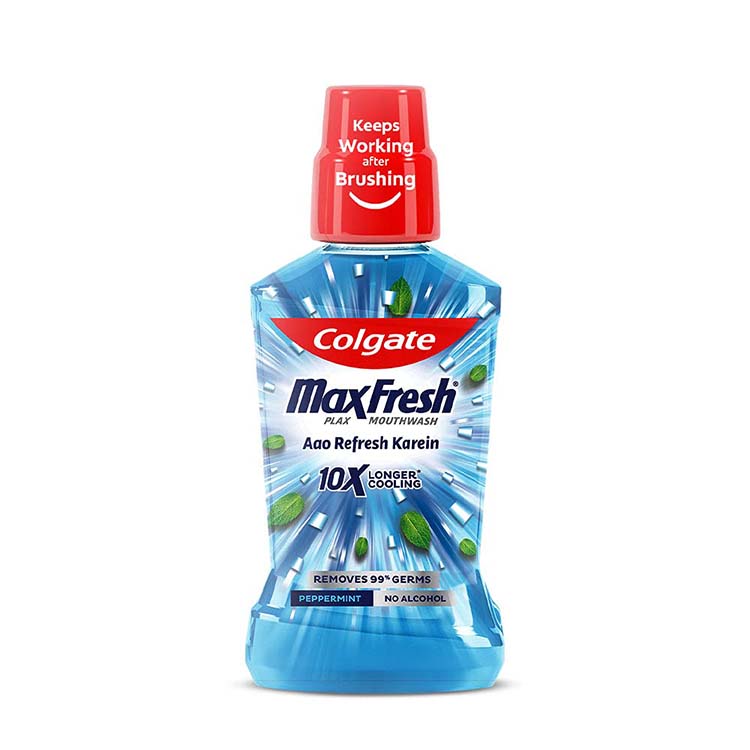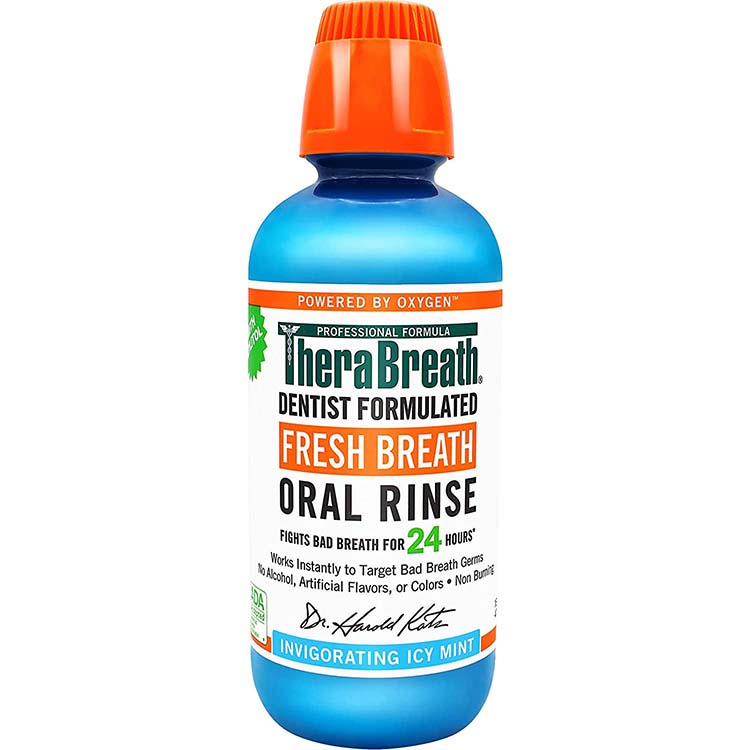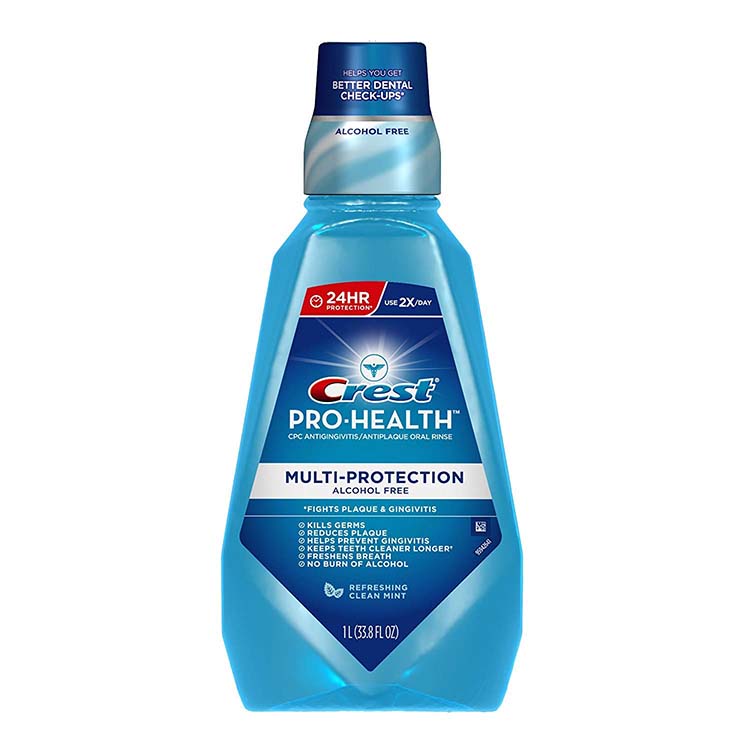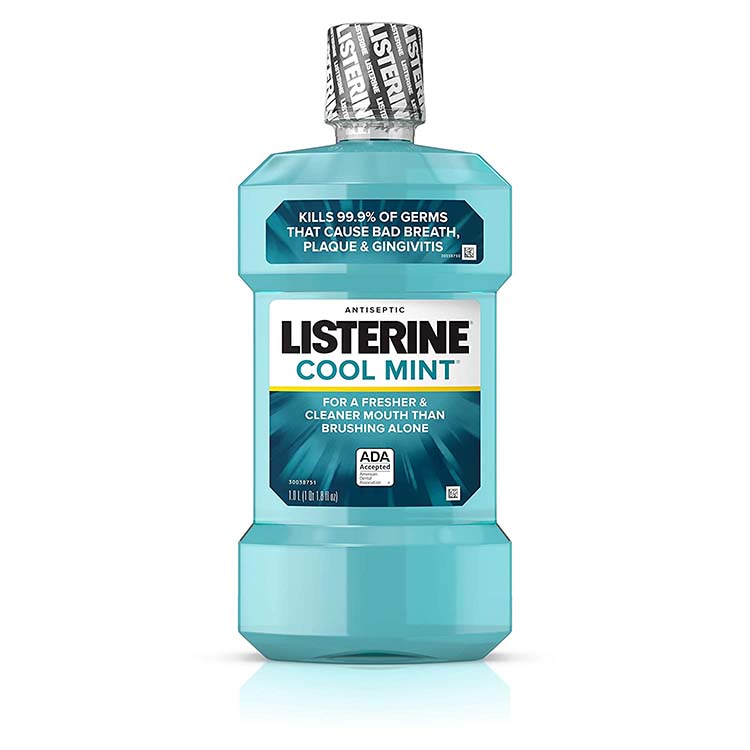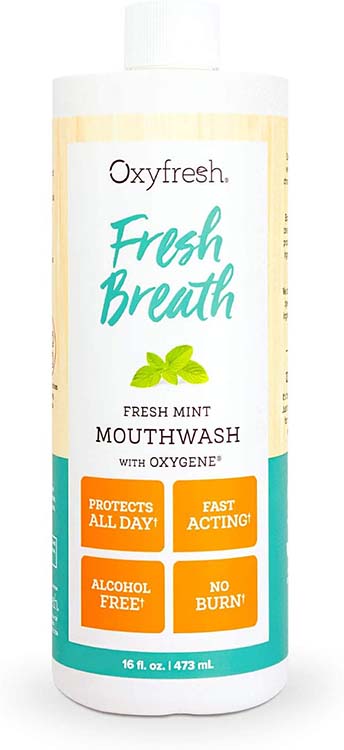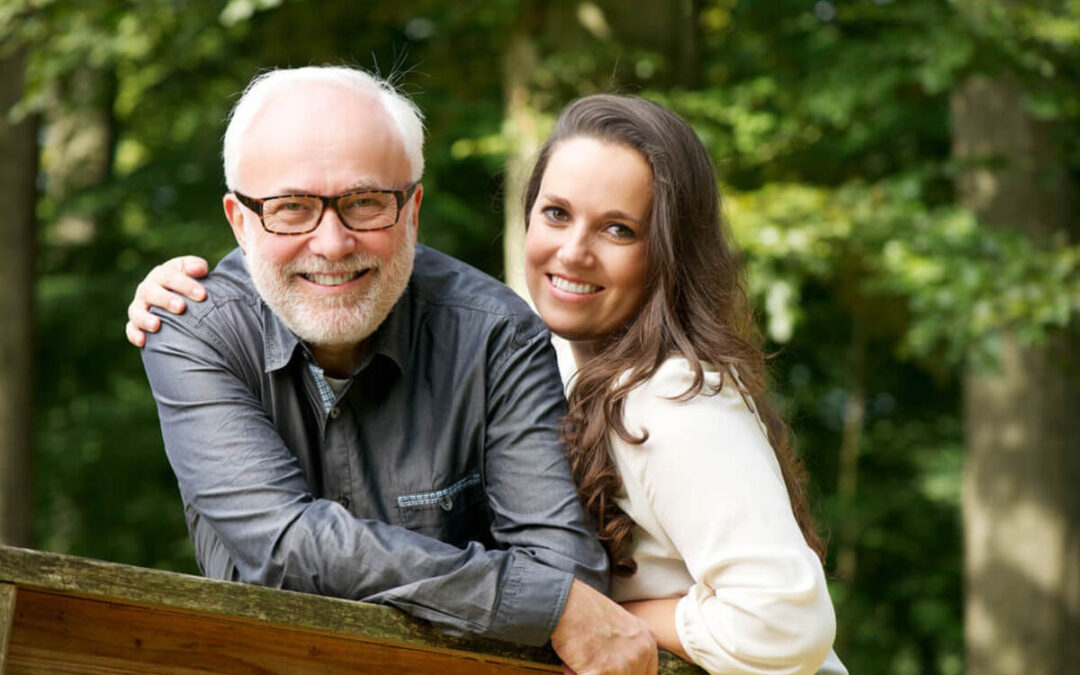Are you wondering what the best mouthwash for bad breath is? If so, carry on reading to find out more about bad breath, its cause, how mouthwash can help, and when to use it. Most people know the importance of brushing and flossing their teeth to combat bad breath, yet plenty of people still suffer from bad breath each day.
In the worst-case scenario, bad breath can scupper your love life. After all, nobody wants to kiss a person with smelly breath. If you routinely brush your teeth each day but still suffer from smelly breath, then perhaps it’s time you consider using mouthwash.
But before we delve into the world of mouthwash, let’s take a quick look at the cause of bad breath.
What causes bad breath?
Halitosis or bad breath is a common occurrence caused by numerous reasons:
- Persistent bad breath is often the result of smelly gases released by bacteria coating the teeth, tongue, and gums.
- When food particles get trapped in between the teeth, they may rot and cause an unpleasant odour.
- Strong tasting food and drink like garlic and coffee can also cause the breath to smell.
- Medical problems such as dry mouth are known to cause bad breath.
- Smoking cigarettes leaves your breath smelling and can lead to a variety of serious medical issues.
- Infections in the nose or lungs, such as sinusitis or bronchitis, can also cause your breath to smell unpleasant.
Does mouthwash work?
Mouthwash is a popular oral hygiene product. So much so that the sales value of mouthwash in Australia was AUD 86.56 million in 2018 and growing fast.
But since mouthwash is only in the mouth for around 30 seconds before being spat into the sink, it makes you wonder whether it makes any difference to a person’s oral health?

However, it is an excellent addition to your oral health regimen to reduce dental issues like plaque and gum disease. Other benefits that come from the regular use of mouthwash include
- Fresher breath
- Additional protection from cavities and gum disease
- Fewer harmful bacteria and plaque in your mouth
Mouthwash overview
It can be confusing to know the top mouthwash for bad breath when the supermarket shelf is full to overflowing with countless products all purporting to do the same thing.
The key is to check the ingredients just as you do when shopping for groceries.
While there may be a slight difference between each type of mouthwash, the following ingredients are usually included:
- Alcohol – helps kill the germs and bacteria that lead to bad breath and tooth decay.
- Flavourings – and colours make the mouthwash look and taste nice
- Detergents – dislodge and remove food particles and loose plaque
- Preservatives – stop bacteria growing in the mouthwash
- Water – dissolves other ingredients
Some mouthwashes also contain fluoride that helps defend against tooth decay by strengthening the teeth and making them more resistant to acid attacks.
By the way, did you know that saliva acts as a natural mouthwash to help rinse away bacteria causing bad breath and gingivitis?
Here’s a top tip for you: Choose a mouthwash bearing the ADA’s Seal of Approval. You know that medical professionals have endorsed it.
Although mouthwashes may look pretty similar, they are not equal. Here are some tips for choosing the best mouthwash for you:
Smell – If your primary concern when finding the effective mouthwash for bad breath is to keep your breath smelling sweet all day long, then keep it simple and choose the mouthwash that smells the nicest.
Dry mouth – If you suffer from dry mouth – a condition that can also contribute to bad breath – the best mouthwash to choose is alcohol-free. Alcohol is harsh and can exacerbate dry mouth even further, making it hard to produce saliva.
Gum disease – Gum disease can also make your breath smell. You may want to consider chlorhexidine (Corsodyl or Savacol), but you must always seek professional advice when purchasing over the counter remedies.
Fluoride – many types of mouthwash contain additional fluoride to help fight tooth decay but be careful not to swallow the mouthwash accidentally as excess fluoride can be toxic.
Whichever mouthwash you choose, include it in your daily oral routine to get the most from it.
But hang on… We still haven’t given you an exact answer to the question of the perfect mouthwash for bad breath, so let’s do that now.
Here is our list of the top 6 types of mouthwash for bad breath, along with their pros and cons.
(Please note these products are in no particular order of preference).
Colgate Plax Freshmint
While several alcohol-free oral rinses to choose from, this mouthwash from reputable brand Colgate is cost-effective and tastes good! One of its main ingredients is cetylpyridinium chloride, an ingredient commonly found in alcohol-free mouthwash.
Pros
- Just 20 ml is needed
- No alcohol burn
- Not too strong
- No after taste
- Cost-effective
- Widely available
Cons
- The mouth does not stay fresh for that long
Thera Breath Icy Mint
This mouthwash fights bad breath for up to 12 hours and can be used regularly for dry mouth and bad breath problems. It works by neutralising sulphur-producing bacteria that cause smelly breath and has a non-acidic formula and a refreshing icy mint flavour.
Pros
- Certified kosher, vegan and gluten-free
- No artificial colours, flavours, or alcohol
- Approved for diabetics
- Cruelty-free and non-tested on animals
- No burn
Cons
- Users of this mouthwash must rinse twice a day for best practice making it an expensive choice
- A little overpowering
- Unappealing bottle design
Crest Pro-Health Multiprotection
Again, this oral mouth rinse is from a reputable, well-established global brand and claims to advance the user to a healthier mouth from day one. Alcohol-free, the mouthwash kills 99% of the germs that cause bacteria, plaque, gum disease and bad breath.
Pros
- Available in two flavours – cool wintergreen and clean mint
- Freshens smelly breath
- Helps prevent gingivitis
- Non-alcoholic
- No burning
- Handy size bottle to take anywhere
- Reasonably priced
Cons
- Not as minty tasting as many other brands
- It contains parabens (preservatives)
- The active ingredient (cetylpyridinium Chloride) can cause staining in some individuals
- Contains artificial colouring
ACT Dry Mouth
While technically this isn’t the leading mouthwash for bad breath, per se, ACT is recommended for dry mouth, which contributes to bad breath. It soothes the dry mouth, hydrates soft tissues, strengthens teeth and freshens breath by eliminating bacteria and germs in the mouth.
Pros
- Some people find the taste unpleasant
- The mouthwash can become gel-like when mixed with water and may clog your drain
Listerine Cool Mint Antiseptic
With just 30 seconds of rinsing, Cool Mint kills germs with its bold tingle. It comes in various sizes, including a handy travel size that’s great to keep by your side for oral freshness on the go. Its active ingredients include menthol, eucalyptol, thymol and methyl salicylate.
Pros
- It kills germs that lead to bad breath, plaque, and gingivitis
- Reduces gingivitis by 21% more than brushing and flossing alone
- Provides 100% coverage on teeth, between teeth and along the gum line
Cons
- Not suitable for children under twelve years of age
Oxyfresh Fresh Mint
If you’re looking for a natural product with a different taste, then this could be the best mouthwash for you. With its patented zinc and Oxygene® formula, this lemon mint mouthwash contains soothing aloe vera, xylitol natural sweetener, and natural essential oils.
Pros
- A mouthwash that is simple, safe and trusted
- Clinically proven to neutralise harmful breath germs by 85%
- Oxyfresh helps to improve gum health too
Cons
- The lemon-mint flavour is not to every person’s taste
So you now know the top mouthwash for bad breath, when is the best time to use it?
Mouthwash is best used immediately after brushing and flossing teeth. Swish it around in your mouth for approximately 30 seconds and gargle with it at the back of your throat. Then, spit the mouthwash out. It’s always best to reach out for it at the end of your cleaning routine and leave it to remain on your teeth without rinsing.
Remember that while mouthwash kills surface bacteria, it doesn’t cure the underlying cause or dental issues.
How your dentist can help if you have bad breath?
If you suffer from bad breath, you need to adopt a routine to keep your mouth clean and fresh. Regular dental check-ups enable your dentist to look for areas where plaque has not been removed and has hardened.
A hygienist will clean all those hard to reach areas and point out places you may be missing, such as the tongue. They will also show you how to brush and floss properly.
You deserve fresh breath
Many bad breath problems result from poor oral hygiene, but our dental team is here to help.
A dental check-up will help us evaluate your oral health and create a treatment plan to help you get your oral health back on track. If you have constant bad breath and have not visited your dentist in a while, why not book an appointment with Dental 266. We’re not here to judge but to help you rid yourself of bad breath for good.
Call us today on (02) 9051 0600 or use our online booking service.


